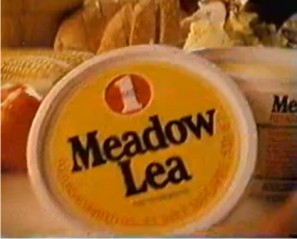
What’s cooking for Goodman Fielder?
Goodman Fielder produces many of the fast moving consumer goods you would recognise, with brands such as Helga’s bread, Paradise Biscuits, White Wings and Meadow Lea in its repertoire. But despite this enviable suite of brands, the company incurred considerable losses in both 2011 and 2012 and was burdened with debt during the GFC. In the last twelve months something changed and Goodman Fielder generated a profit in 2013. Does this turn around in profits signal a turn around in the fortunes of the company and in its investment merit?
The growth in earnings has been driven solely by a disciplined ‘cost out’ program. We generally don’t like cost cutting ‘programs’ because we believe managers should be making cost cutting a daily habit – like brushing teeth. Nevertheless, management is aiming to achieve $100 million in annualised cost savings by 2015, and by June 2013, $65 million had already been achieved. Yet no matter how much the company invests in reducing its cost base, the company may fail to offer compelling value if revenue doesn’t grow. In 2013, revenues from the baking division fell by 3 per cent, while revenues from groceries slumped 7 per cent.
Companies that are able to develop strong brands and share of mind should, in theory, be able to translate that into the most valuable form of competitive advantage – pricing power. Yet despite many of Goodman Fielder’s products being household names, the company has been unable to translate its brand power into price increases and revenue growth.
Australia’s testing retail landscape is partly to blame even though Goodman Fielder’s competitors have not followed suit with price rises. Enter Woolworths and Coles. Currently engaged in a price war across many categories, Goodman Fielder’s revenues fell, in our view because consumers and distributors did not believe that its products differentiated themselves significantly enough from competitors to justify the price increase.
With its cost reduction program on track, management is now investing in brand recognition through increasing marketing expenditure. It’s tenuous at best and until these efforts are translated into meaningful top-line growth, we don’t believe that Goodman Fielder’s long-term value is compelling enough.
This post was contributed by a representative of Montgomery Investment Management Pty Limited (AFSL No. 354564). The principal purpose of this post is to provide factual information and not provide financial product advice. Additionally, the information provided is not intended to provide any recommendation or opinion about any financial product. Any commentary and statements of opinion however may contain general advice only that is prepared without taking into account your personal objectives, financial circumstances or needs. Because of this, before acting on any of the information provided, you should always consider its appropriateness in light of your personal objectives, financial circumstances and needs and should consider seeking independent advice from a financial advisor if necessary before making any decisions. This post specifically excludes personal advice.
INVEST WITH MONTGOMERY
Hi Ben, The easy money in food, the big mark up, is in the retail end not wholesale. Corporate farming is in the process of rationalizing this. Flatlining if not falling property values coupled with commodity prices the same as yesteryear, not counting inflation make term deposits look high yield. I do understand Goodman F are manufacturers not farmers but at the end of the day like a farmer they say, here is my product what can you give me? We may not be in a recession but there is a lot of belt tightening happening out there. When mum goes out to do the shopping do you think she cares how the pasta and flour come wrapped? If not for the current major retailers price wars there might be more hungry folk than we see now. Back to the theme of your blog. No I dont see value in this sector or in long term investment in corporate ag. There isnt enough fat in the system.
Thanks for your insights Mark. Interesting that now even branded product providers are commoditised. One suspects there are many global brands and many jurisdictions where this is not the case but sadly, in Oz, legislation and policy has produced the outcome you describe.